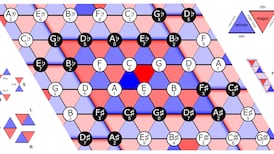A success of the Irish presidency of the Council of the European Union was the agreement reached for Horizon 2020 on June 26th. Originally, in November 2011, the European Commission had proposed a budget of €80 billion for the research and innovation programme that will run between 2014 to 2020, while the European Parliament had proposed increasing this to €100 billion. Following protracted negotiations, a deal was finally brokered for €70.2 billion. The final decisions will be taken by the Council of Ministers later this month, with the European Parliament voting in September.
The total budget for the current Framework Programme (FP7) is €55 billion, so the increase to €70.2 billion looks significant, at 28 per cent. However, one has to take into account that there are parts of Horizon 2020 that were not funded under FP7. Nevertheless, the overall budget represents a worthwhile increase.
The programme has been structured under three pillars: excellent science, industrial leadership, and societal challenges.
The excellent science pillar, which encompasses the European Research Council, Marie Sklodowska Curie Actions, Infrastructure and Future and Emerging Technologies (FET), receives 37 per cent of the total.
The ERC will have a budget of €11.9 billion (17 per cent) and Marie Curie €5.6 billion (8 per cent), with the balance going to other actions. This is the first time since the Framework Programmes began in 1984 that there has been an explicit focus on supporting leading-edge research across all scientific and humanities disciplines.
The industrial leadership pillar, containing specific support for SMEs and for key enabling industrial technologies, receives 22.5 per cent. The overall aims of this pillar are to boost job creation and stimulate private investment in research and innovation.
The third pillar, with 38 per cent of the budget – societal challenges – is designed to point research towards finding solutions for problems faced by all of Europe. The issues tackled will focus on longer and healthier lives; reliable, clean, efficient energy; safe, secure food supply; and smart, green transport.
Recognising SMEs
Complementing these pillars is a specific undertaking to recognise the role of SMEs, and 20 per cent of the overall budget will be directed towards the sector. The introduction of specific measures dedicated to widening participation will include twinning of institutions, and staff exchanges between rich and developing regions of Europe. This will have its own independent standing and receive 1 per cent of the Horizon 2020 budget.
A new simplified funding model will rationalise funding applications across the whole programme, cutting back on bureaucracy, and should increase the pool of potential applicants. The Commission is setting as a standard an eight-month “time to grant” target. New systems will bring about easier grant management and there will be fewer and more targeted audits with a single set of rules for all participants.
A sticking point of negotiations was the funding model. Many argued there should be a range of options, including the model that would allow organisations to recover the full costs of research, as in Framework Seven. However, the final agreed model is that the Commission will pay all direct costs and make a contribution of 25 per cent to indirect costs or overheads.
The European Commission is taking a proactive role in finding synergies between Horizon 2020 and other EU funding streams. For example, there is explicit mention of how EU structural funds are now eligible for research and can be combined with Horizon funding. However, in order to access this strand of structural funds, regions must have a smart specialisation strategy in place. This is a planned strategic approach to regional economic development through a focused support for research and innovation.
Overall, researchers across Europe will put greater effort into securing research funding from Horizon 2020. Those countries that receive significant structural funds will be able to invest in national research support and become more competitive at a European level.
Over the lifetime of Framework Seven, researchers in academia and industry in Ireland have ensured success rates for funding above the European average.
Conor O'Carroll is research director in the Irish Universities Association, iua.ie








